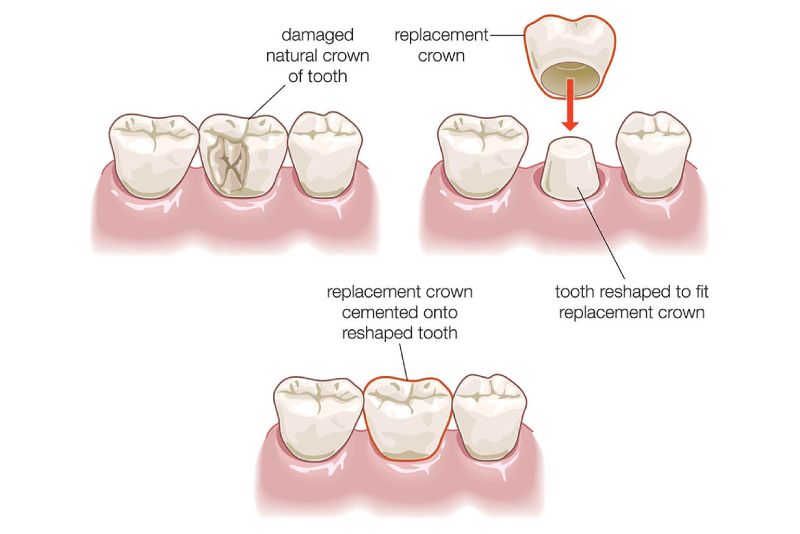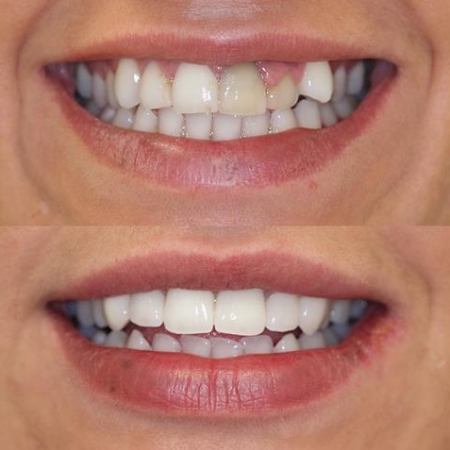Crowns are fixed prosthetic devices. Unlike removable devices such as dentures, which you can take out and clean daily, crowns are cemented onto existing teeth or implants, and can only be removed by a dentist.
A crown is used to entirely cover or “cap” a damaged tooth. Besides strengthening a damaged tooth, a crown can be used to improve its appearance, shape or alignment. A crown can also be placed on top of an implant to provide a tooth-like shape and structure for function. Porcelain or ceramic crowns can be matched to the colour of your natural teeth. Other materials include gold, composite and porcelain fused to metal. For people who want to improve their smile there are crowns which look very bright and natural.
Your dentist may recommend a crown for the following reasons:
- To replace a large filling when there isn’t enough tooth remaining.
- Protect a weak tooth from fracturing.
- Restore a fractured tooth.
- Eliminate “Cracked tooth” symptoms.
- Cover a dental implant.
- Cover a discoloured or poorly shaped tooth.
- Cover a tooth that has had root canal treatment.
- Improve the appearance of your front teeth if they are worn or damaged.

It will generally take several appointments to prepare and fit a crown. At your first appointment your dentist will conduct a thorough clinical examination to assess suitability and any preparatory work required will be carried out. Dr. O’Shaughnessy will also be able to advise on material choices, treatment sequence and any other concerns you may have.
Next, the teeth to be crowned are prepared. This will involve a reduction of tooth size, followed by an impression or mould of the area. This trimming of the tooth is necessary in order to create space for the crown to be fitted. The impression will be sent to a specialised lab technician for creation and a temporary crown will usually be fitted for the interim period.
Finally, when your crown is ready, the temporary crown will be removed and the tooth surfaces cleaned. The completed crown is tried on the tooth and your dentist will check for for fit, harmony with your bite and appearance. The crown will then be cemented in place using dental cement.

Care of your crown
Whilst crowns are made of durable materials that do not deteriorate over time, the underlying tooth can still be prone to decay and gum disease. It is essential therefore that you maintain good oral health by brushing and flossing daily. If you have had a crown fitted, avoid excessive chewing of hard substances such as ice or bone – this should help to keep your crown trouble free. Regular check-ups with Dr. O’Shaughnessy will ensure that he can detect any problems with your crown and recommend necessary treatments.
If you feel that you may require a crown, please call the practice today on 091 525797 to book an appointment and discuss treatment options with Dr. O’Shaughnessy.

